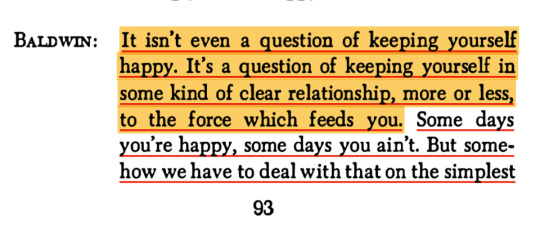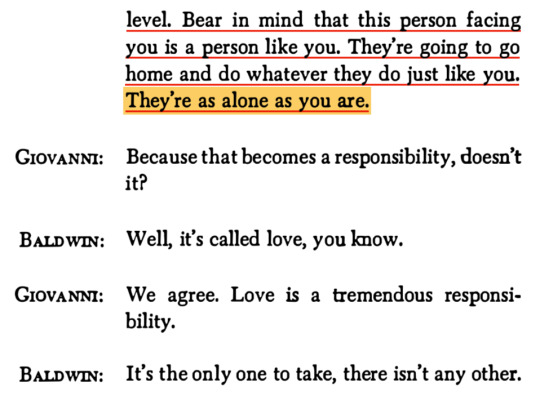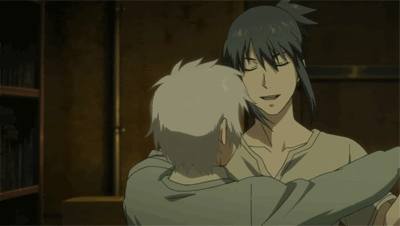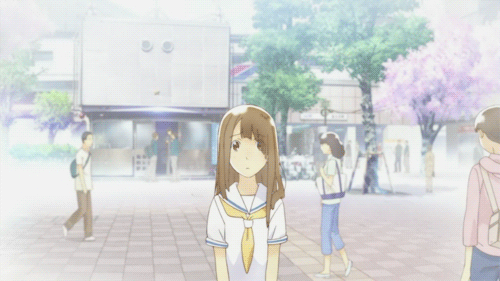Call me Liz. I'm a non-binary trans dyke librarian in their 30s, currently living in France. "Words that sleep in the body all night and in the daytime come out and touch you like a warm hand" (R. W.) 🎐🍃 Antiwar feminist resistance 🌰🌿 From 2014 to 2020 this blog used to be called #lisewine 📖✍🏻
Don't wanna be here? Send us removal request.
Text
Cringe started as a verb describing a physical reaction, i.e.: "I cringe when I see [x]."
Modern slang has turned cringe into an adjective describing anything to which a person might have such a reaction.
.
This shift in language is illustrative of a shift in culture.
.
For a while there, in the early 2000s, there was this big sex positivity movement and we talked openly about kink and queer sexuality and creating a culture of consent that broke away from traditional conservative ideas of moral respectability.
And now we are in the midst of this giant purity culture backlash, this giant push for rigid conformity all over the internet. Anything that deviates from the norm even remotely is ridiculed.
And this cultural shift is perfectly encapsulated in this singular linguistic shift, this verb becoming a noun.
The Revenge of the Pearl Clutchers
That's what "cringing" is. It's pearl clutching.
When the pearl clutchers turned cringe into an adjective, they turned a reaction into an accusation. The pearl clutchers don't want to take responsibility for their own kneejerk emotions. They want to blame YOU.
They are saying, "My disgust isn't the fault of my own backwards prejudices. It is YOU who are inherently disgusting. My inability to cope with even the slightest deviation from norm is not the problem here. YOUR refusal to rigidly conform is the problem. I am not the one who is cringing. YOU are the one who is cringe."
Fuck 'em.
.
Take the word back.
Cringe is not something people are.
It's something judgmental assholes do.
36K notes
·
View notes
Photo


In 1919, Alice Anderson (left) established Australia’s first all-female garage - the garage was staffed entirely by women, and not only serviced cars, but provided courses to women in how to drive and look after their own vehicles.
In the same decade, activist Lesbia Harford was fighting against conscription, and for the rights of workers, while also penning love poems to other women.
These are just two of the queer women covered in She and Her Pretty Friend, the first book of its kind, exploring the history of Australia’s queer women. We were lucky enough to interview the book’s author, Danielle Scrimshaw. Check it out!
[Images: Alice Anderson, a young woman in a chauffeur’s uniform; Lesbia Harford, a young woman wearing an open jacket, shirt and loose tie]
185 notes
·
View notes
Text
The Sun
by Mary Oliver
Have you ever seen anything in your life more wonderful than the way the sun, every evening, relaxed and easy, floats toward the horizon and into the clouds or the hills, or the rumpled sea, and is gone– and how it slides again out of the blackness, every morning, on the other side of the world, like a red flower
streaming upward on its heavenly oils, say, on a morning in early summer, at its perfect imperial distance– and have you ever felt for anything such wild love– do you think there is anywhere, in any language, a word billowing enough for the pleasure that fills you, as the sun reaches out, as it warms you as you stand there, empty-handed– or have you too turned from this world– or have you too gone crazy for power, for things?
771 notes
·
View notes
Text


James Baldwin in conversation with Nikki Giovanni
14K notes
·
View notes
Text
We need to start sexualizing mobility aids
24K notes
·
View notes
Text
A good reminder!
I gotta say, so much queer intra-community horseshit dropped off my shoulders when I decided to adopt a firm policy that everyone is the expert in their own identity, the single most knowledgeable person about what it's like to live life in their own skin, and that if someone describes their experience in ways I find contradictory or paradoxical I should do them the courtesy of presuming that they are striving to express something very specific and nuanced, rather than leaping to the conclusion that they're just dumb and using words wrong.
Sure, there are some combinations of identity terms that I look at and go "hmm, I don't get how that works." I'm still a human being. But there's a big difference between not getting how something works versus insisting that it doesn't.
65K notes
·
View notes
Text
Happy birthday to revolutionary communist and trans pioneer Leslie Feinberg ♥️ May hir memory be for a blessing.
If anyone is interested in reading hir work, here are free PDFs to all hir books + column for Worker’s World
Transgender Liberation (1992)
Stone Butch Blues (1993) [epub version here]
Transgender Warriors (1996)
Trans Liberation: Beyond Pink or Blue (1999) (you need an account for this one, but it’s still free)
Drag King Dreams (2006)
Lavender & Red (2004 - 2008)
Rainbow Solidarity: in Defense of Cuba (2009)
16K notes
·
View notes
Text
A good reminder!
The desire for perfection and clarity in every aspect is one of the biggest hurdles in the discussion of queer history.
It comes in many forms, one of the ones I have encountered the most personally is the desire people seem to have for queer people of the past to line up with some moral baseline before being understood as queer. As if the queer community is some monolithic paragon of virtue that must be gatekept.
There were queer Nazis, slave owners, abusers, colonizers, and murderers, beyond that there were scores of queer people complicit in those kinds of actions. They are just as much a part of the queer community as the best among us.
There is also this ever-present want for clear concise evidence that is unimpeachable, which is a little silly when you think about it. Queer people from three hundred years ago are not going to define themselves in ways that are easily understood and labelled by us now. How could they be expected to? When some historians say that modern labels can’t be applied to people in the past, they aren’t entirely wrong, but they aren’t entirely right either.
Calling a woman who had never heard the word lesbian used to mean anything but “someone from lesbos” a lesbian, is not perfect, because the best way to find a label for someone is to follow their self-identification and we don’t always have that. But lesbians can look at her poetry as an echo of their own experiences, and using the word lesbian to discuss her can be a useful (if imperfect) tool to connect our present to our past. Queer people from the past have experiences in common with modern members of the community, and that is worth discussing. That being said, that doesn’t mean they can be expected to be perfect representation. In fact, expecting “good representation” from anything but fiction is a recipe for disaster.
Also since queer history is a relatively new field of research, we can’t expect every conclusion we come to, to be the right one. We are products of our time just as much as the people we study, and that’s okay. Mistakes can and will happen, and those mistakes will make room for correction and growth for the people who come after us. Yes, we should be putting our best foot forward, but we just have to accept that we will slip sometimes.
The expectation for perfection is a form of discrimination. Plain and simple. Queer history is a study of complex, messy, horrible, brave, and incredible people from the past, and the ties that connect them to us here in the present. As someone who has spent a lot of time thinking and researching that subject, I have to say: the messiness of it all is what makes it worthwhile.
#queer history#messiness#representation#methodology#queer studies#études queer#important#hirstory#reblog
3K notes
·
View notes
Photo

Daphne Christoforou
14K notes
·
View notes
Text
Cizí akvária/Other people’s aquariums
Na cizích bytech mám ráda, že uspořádání věcí
v prostoru je dané, mohu je pouze obhlížet,
jak dlí.
V mém bytě mě znervózňuje opak
– nedefinitivnost.
Jako v životě. Křehkost, zranitelnost dnešního stavu.
To, že bych teoreticky každou chvíli mohla vším
pohnout jinam. Mé věci, šaty, skříně a stoly jsou prosyceny provizorností mého pobývání na zemi, mou nejistotou a smrtelností.
Všechna cizí akvária nekriticky přijímám (pokud v nich není umělohmotný hrádek), jen s tím svým se nedokážu smířit, zdá se mi tmavé, jeho špína padá na mou hlavu,
jsem svědkem ryb, které v něm umírají a které musím vyhazovat do záchoda,
květiny v něm musí být přeskupovány, nahrazovány novými, protože žloutnou.
Ale už mnoho let ho držím při životě, kupuji nové ryby, topím jim, čistím písek a kameny a nedokážu s tím přestat. Ovšem, že dokud nepraskne a nevyteče, svoje akvárium dobrovolně nikdy nezruším.
-
What I like about other people’s apartments is that the way
objects are arranged in space is given, I can only
watch them be.
In my own apartment what makes me nervous is the opposite —
nothing is definitive.
As in life. Fragile, vulnerable the way things are today.
I could, theoretically, move anything
at any time. My things, clothes, wardrobes and tables
are suffused with the provisional nature of my existence
here on earth, with my uncertainty, my mortality.
I uncritically accept all aquariums belonging to other people
(as long as there is no plastic castle inside) only my own aquarium I cannot come to terms with, it appears dark, its dirt falls on my head
I witness dying fish that I then have to throw into the toilet
the flowers in it have to be endlessly moved around replaced with new ones because they turn yellow.
Yet, I keep it alive for years, buy new fish, keep them warm, clean the sand and stones unable to stop. Of course, until it cracks and the water pours out I will never voluntarily abolish my aquarium.
Kateřina Rudčenková
Translated from Czech by Alexandra Büchler

The author reading her poem at the Václav Havel Library in Prague
#Kateřina Rudčenková#Cizí akvária#Other people’s aquariums#poetesses#women writers#poetry#poem#english translation#bilingual#literature#Alexandra Büchler#anthology
10 notes
·
View notes
Photo

64 notes
·
View notes
Text
actually good lgbt anime
A list for anime fans that are sick of how gay anime tends to cater to straight peoples fantasies. These are more mature and have an actual plot/are made for queer people.
Antique Bakery - Shoujo comedy otherwise titled “Seiyou Kottou Yougashiten: Antique” and 西洋 骨董 洋菓子店 in Japanese. It has 12 episodes and also a live-action adaptation! It follows the lives of four men working in a bakery. The owner and waiter, Tachibana, comes from a rich family and was kidnapped as a child. Haunted by nightmares of the experience, he decides to open up a cake shop. Yusuke Ono is the patisserie, and went to highschool with Tachibana. He’s known as “the gay of demonic charm” because men often fall for him regardless of their orientation. Eji Kanda is a former and injured young boxer with a major sweet tooth working as Ono’s apprentice. Finally, Chikage Kobayakawa is a childhood friend of Tachibana sent by Tachibana’s family to keep an eye on him. He’s very clumsy and struggles with training to be a waiter.

Bloom Into You - School romance anime titled “Yagate Kimi ni Naru” and やがて君にな in Japanese. 13 episodes long with an English dub available. Yuu Koito is a freshman who’s never experienced feelings of love. When a junior high student confesses to her, she feels nothing and delays her response, entering highschool without giving a reply. While there, she meets Student Council President Touko Nanami, who shares her lack of romantic feelings. Touko encourages her to turn the junior high student down, and the two girls bond over their similarities. Things seem to be going well until Touko admits that she’s developed feelings for Yuu.

From The New World - Psychological Sci-fi drama titled “Shinsekai Yori” in Japanese. 25 episodes long with an English dub available. Though the two female love interests are featured below, the show also has two male love interests and all the main characters are heavily implied to be bisexual. Following an outbreak of psychokinesis in 0.1% of the population, a transformation sweeps rapidly through the world. The ability to manipulate matter sends earth into an era of chaos and violence before the psychic humans are finally able to cobble together a fragile peace by isolating themselves from society and creating a new world for themselves thats bound by comolex rules. Inside the town of Kamisu 66, 12 year old Saki Watanabe has just awakened her powers and is happy to rejoin her friends- Satoru Asahina, Mamoru Itou, Maria Akizuki, and Shun Aonuma- at a special academy for people with powers. Things arent as happy and peaceful as they seem though when Saki begins to question what happens to those without powers..

No. 6 - No. 6 is a science fiction dystopia taking place in a city known only as “No. 6”. Shion is a privileged boy from an elite family, on the right track to becoming a well adjusted and functioning member of society when he meets a boy named Nezumi, on the run from authorities. When he gives him shelter and is discovered, his entire world is cjanged and the privileges his family had are stripped from them. Years later, after finding a mysterious body, the two men are reunited. English dub available, 11 episodes.

Revolutionary Girl Utena - Titled “Shojo Kakumei Utena” and 少女革命ウテナin Japanese, Utena is fantasy/romance anime set in a school called Ohtori Academy. It follows a girl named Utena Tenjou, who’s always dreamed of being like a prince. She meets Anthy Himemiya, a strange girl referred to as the “Rose Bride” who is dueled over by the school’s student council in hopes of winning a tornament and gaining the power to “revolutionize the world.” The romantic relationship between Anthy and Utena is more explicit in the film, but the Anime has several more explicitly queer characters and moments. Family and sexuality are two of the most reoccuring themes throughout the show. English dubbed, 39 episodes + 1 film.

Simoun - Titled シムーン Shimūn in Japanese, 26 episodes available and only English subtitled. Simoun is a planetary romance/coming of age Anime taking place on an earth-like planet named Daikuriku. The people born there are all born female. In the nation of Simulacrum (a land with a monopoly on helical motor tech that other lands covet and wage war against) all girls grow up until the age of seventeen, before travelling to the “holy place” and selecting their permanent sex. Simulacrum is defended by airships known as “Simoun” that can only be piloted by priestesses known as “Sibyllae” which are girls who havent chosen a permanent sex. Doing so prevents them from piloting the ships. This story follows the girls as they nake important decisions regarding their futures while a war is waging.

Sweet Blue Flowers - Coming of age romance Anime titled “Aoi Hana” and 青い花 in Japanese, 11 episodes and only English subtitles available. The story follows Fumi Manjome, a lesbian high school girl and her close childhood friend Akira Okudaira. It follows both girls and their friends as they enter highschool and face new struggles and challenges such as dating, coming out, and realizing others in their lives might be queer as well.

Wandering Son - Titled “Hourou Musoko” and 放浪息子 in Japanese, subtitled only, 12 episodes long. The story follows two young transgender children from elementary school all the way through high school. Shuichi Nitori is seen as a boy, but she longs to be recognized as a girl. While in the 5th grade she encounters Yoshino Takatsuki, who everyone believes to be a girl but is actually a boy. The two bond over their similarities and become close friends. Wandering son touches on many topics from pubery related worries to binding to transphobia.

Whispered Words - Titled “Sasameki Koto” and ささめきこと in Japanese. 13 episodes, only subtitled available. The series follows Sumika Murasame, a 15 year old student secretly in love with her female best friend, Ushio Kazama. Ushio also likss girls, but only cute small ones- which Sumika is definitely not. The two friends get to know another two girls in their class who are a couple, and contemplate starting a “girls club” for lesbians. The series tackles several topics surrounding sexuality and gender.

Yuri!!! On Ice - Titled ユーリ!!! on ICE in Japanese. English dubbed, 12 episodes. Yuri on Ice is a sports-comedy Anime series about figure skating. After a crushing defeat in The Grand Prix Final, 23 year old Japanese figure skater Yuri Katsuki returns to his hometown and puts his career on hold. But after a recorded version of him performing a routine by his idol, Victor Nikiforov, pops up online, his entire life changes. Victor shows up at his family’s hot springs and offers to coach him.

#anime#anime list#lgbtqia+#yuri#yaoi#there are some of my favorite anime#in this list#simoun#sweet blue flowers#reblog
18K notes
·
View notes
Photo

Susan Kare, famous graphic artist who designed many of the fonts, icons, and images for Apple, NeXT, Microsoft, and IBM. (1980s)
247K notes
·
View notes
Photo
I want to watch it so much!








Tove (2020) | dir. Zaida Bergroth
#tove jansson#film#biopic#women artists#lesbian artists#herstory#caps#movie caps#zaida bergroth#new movie#moumines#moomins#reblog
1K notes
·
View notes
Photo

✿.。.:* ♀ *.:。✿。:.* ♀ *.。.✿ Created By:||☆アズモン📦☆ respective credits to the creator ✿.。.:* ♀ *.:。✿。:.* ♀ *.。.✿ ⓟⒶⓇⒶⒹⒾⓈⒺ♡ⓎⓊⓇⒾ
384 notes
·
View notes
Photo
Gromit has always been à la page


#wallace and gromit#foucault#discipline and punish#surveiller et punir#michel#a penguin classic#books#essay#philosophy#philosophie#caps#reblog
1K notes
·
View notes

